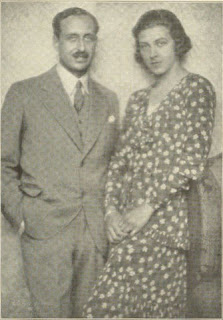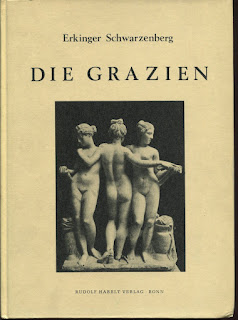Archaeology and art history have long been intertwined passions for Prince Erkinger von Schwarzenberg, a man of refined taste and intellect. Born in 1933, the prince's fascination with the past began early, as he was raised in a family with a deep appreciation for history and culture[1].
Die Grazien, a book published in 1966, marked a significant milestone in the prince's literary career, showcasing his expertise in the field of archaeology. His contributions to the Journal of the Warburg and Courtauld Institutes, including an article on the portraiture of Alexander the Great in 17th-century Italy and France, further solidified his reputation as a respected scholar[1].
what was prince erkinger von schwarzenberg's contribution to the field of archeology
Prince Erkinger von Schwarzenberg's significant contribution to the field of archaeology includes publishing his book "Die Grazien" in 1966, which showcased his expertise in the field. Additionally, he contributed an article titled "From the Alessandro Morente to the Alexandre Richelieu. The Portraiture of Alexander the Great in Seventeenth-Century Italy and France" to the Journal of the Warburg and Courtauld Institutes in 1969.what were some of prince erkinger von schwarzenberg's notable archaeological discoveries
Prince Erkinger von Schwarzenberg's notable archaeological contributions include publishing his book "Die Grazien" in 1966, which showcased his expertise in the field of archaeology. Additionally, he contributed an article titled "From the Alessandro Morente to the Alexandre Richelieu. The Portraiture of Alexander the Great in Seventeenth-Century Italy and France" to the Journal of the Warburg and Courtauld Institutes in 1969.what was prince erkinger von schwarzenberg's most significant archaeological discovery
Prince Erkinger von Schwarzenberg's contributions to archaeology were primarily through his writings and publications, rather than specific archaeological discoveries. He authored the book "Die Grazien" in 1966, which showcased his expertise in the field of archaeology. Additionally, he contributed an article titled "From the Alessandro Morente to the Alexandre Richelieu. The Portraiture of Alexander the Great in Seventeenth-Century Italy and France" to the Journal of the Warburg and Courtauld Institutes in 1969.Prince Erkinger von Schwarzenberg died on 29 April at San Casciano, near Florence. The prince had turned eighty-nine years-old earlier that month.
 |
| The prince's father Johann and mother Kathleen. |
Born on 8 April 1933 at Vienna, Prince Karl Erkinger Thaddäus von Schwarzenberg was the first child and only son of Prince Johann von Schwarzenberg (1903-1978) and Vicomtesse Kathleen de Spoelberch (1905-1978), who wed in 1931. Erkinger was joined by a younger sister, Princess Colienne (b.1937; married Count Maximilian Joseph von Meran). Erkinger's parents, Prince Johann and Princess Kathleen, were both killed in a motor vehicle accident on 26 May 1978 at Cittá della Pieve.
In 1946, Prince Johann and Princess Kathleen purchased a fifteenth-century villa in the countryside of San Casciano. Their son Erkinger was entranced by the villa and returned to live there permanently in 1978.
Erkinger Schwarzenberg attended Oxford and Princeton. His father was the Austrian ambassador to the United Kingdom. In 1957, while a student at Oxford, Erkinger became unofficially engaged to Alice Jolliffee, the daughter of the 4th Baron Hylton - the romance did not end in marriage. On 26 July 1962 at Athens, Prince Erkinger von Schwarzenberg married Elisabeth Constantinides (b.1943). Erkinger and Elisabeth had three children: Prince Johannes (b.1963), Princess Anna Gabriella (b.1964; married 1st Baron Philipp von Waechter; married 2nd Adam Dixon), and Prince Alexander Konstantin (b.1971; married 1st Annabel Dimitriadi; married 2nd Donna Elena Bonanno dei Principi di Linguaglossa). Erkinger and Elisabeth divorced in 1975. On 13 July 1977 at San Casciano, Prince Erkinger von Schwarzenberg married Countess Claudia zu Brandis (b.1949). Erkinger and Claudia had two daughters: Princess Gaia (b.1978; married Loïc van Cutsem), and Princess Ida (b.1980; married Baudouin de Troostembergh).
Fluent in six languages, the prince was keenly interested in archeology and the history of art. He was also a passionate farmer. In 1966, Erkinger's book Die Grazien was published. In 1969, the prince contributed an article entitled "From the Alessandro Morente to the Alexandre Richelieu. The Portraiture of Alexander the Great in Seventeenth-Century Italy and France." which was published in the Journal of the Warburg and Courtauld Institutes.
Erkinger Schwarzenberg is survived by his wife, his five children, and his twenty grandchildren.
May the Prince Rest in Peace.
Source: San Casciano, addio a Karl Erkinger Schwarzenberg: a 89 anni muore il “principe contadino”
As we conclude our tribute to Prince Erkinger von Schwarzenberg, we are reminded of the profound impact his life and work had on the world of archaeology and beyond. His dedication to the study of the past, as well as his passion for farming, left an indelible mark on those who knew him. The prince's legacy extends far beyond his scholarly contributions, as his love for life and his family was evident in every aspect of his being. It is our hope that his story will continue to inspire future generations of scholars and individuals alike, as they strive to make their own meaningful contributions to the world.
In closing, we would like to express our deepest gratitude to Prince Erkinger von Schwarzenberg for his unwavering commitment to his craft and his family. His remarkable life serves as a testament to the power of perseverance and the importance of staying true to one's passions. As we bid farewell to this remarkable individual, we are reminded of the profound influence he had on the world around him. May his memory continue to inspire us all to pursue our own paths with the same level of dedication and passion that he embodied throughout his life.






No comments:
Post a Comment